1_The Identity Potluck with Fathima Mehreen
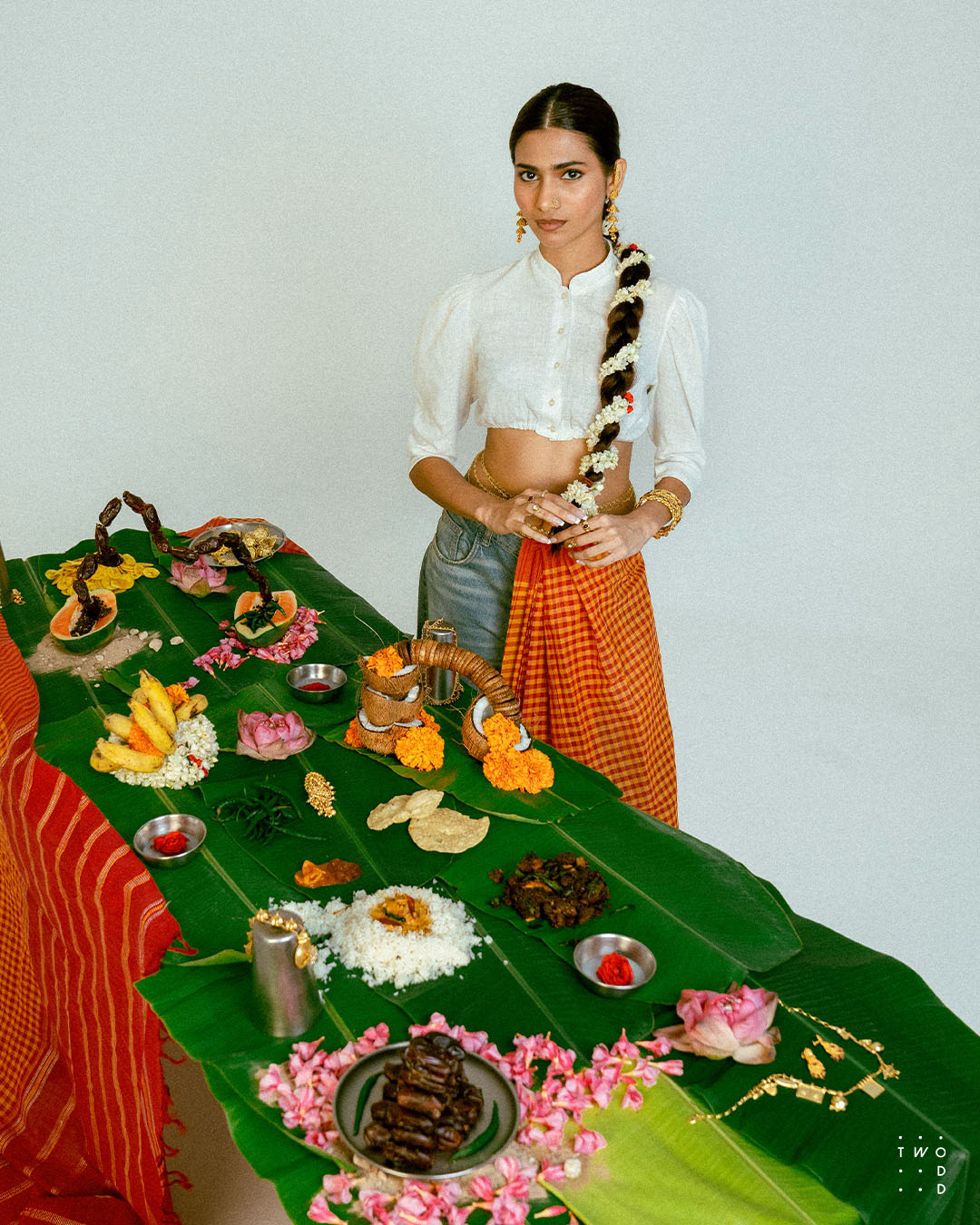


The Identity Potluck is a recurring series that aims to understand how creatives of multi-cultural heritage navigate their identity. The series spotlights their understanding of representation through food. The imagery created features elements native to the creative, and how these elements impact the method in which they have reclaimed their nuanced sense-of-self.
The first Identity Potluck focuses on Fathima Mehreen, a Malayali-Muslim Creative Producer and Photographer living in Dubai. In this edition, Fathima delves into her identity with its multiple influences, and how she has learned to reclaim her heritage for herself.
Name: Fathima Mehreen
Name Alternatives: Reenu
Age: 25
Personal Pronouns: She/Her
Current Occupation: Creative Producer/Photographer
Dream Occupation: A fashion business owner who DJ’s on the side
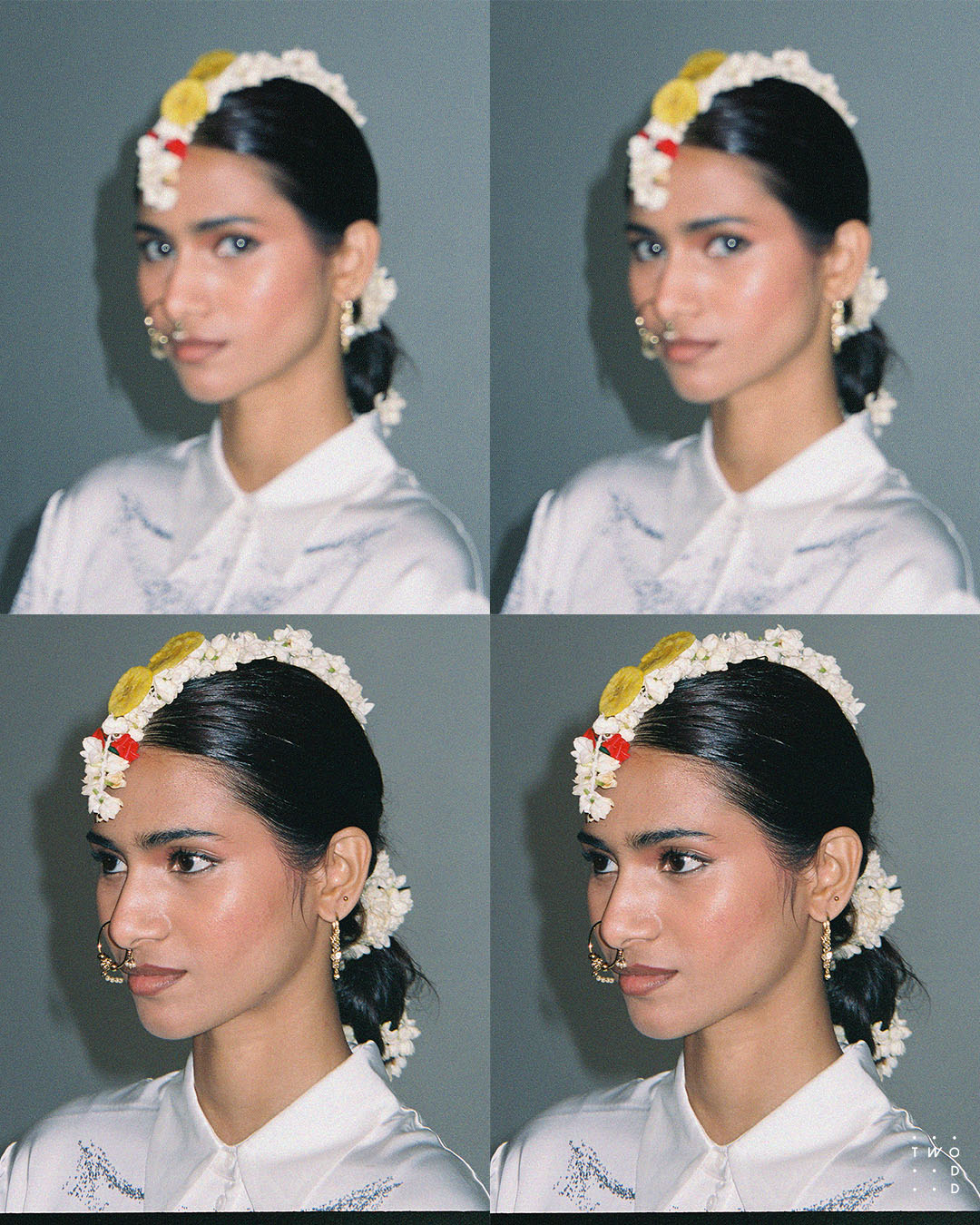
The place I call home: There’s no ‘place’ I call home really. I think there are specific people, music and foods that give me a sense of what home is. But in the more traditional sense, my home would be Kerala. However, I've moved many times and used to live in Bangalore. I currently live in Dubai, where I moved for work.
My home away from home: I feel most at home when I'm in my element, which is usually behind a camera on a set or putting an outfit together.
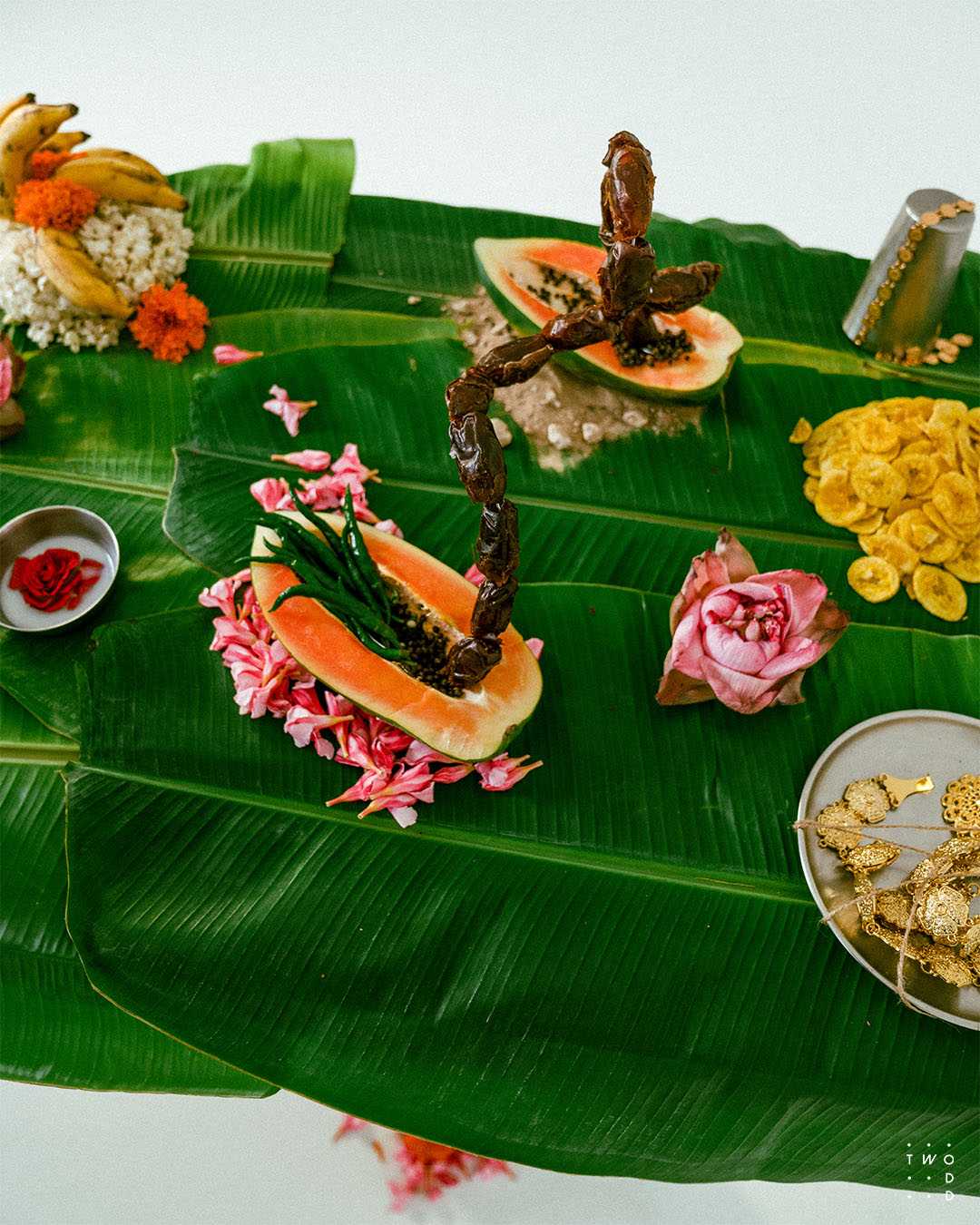
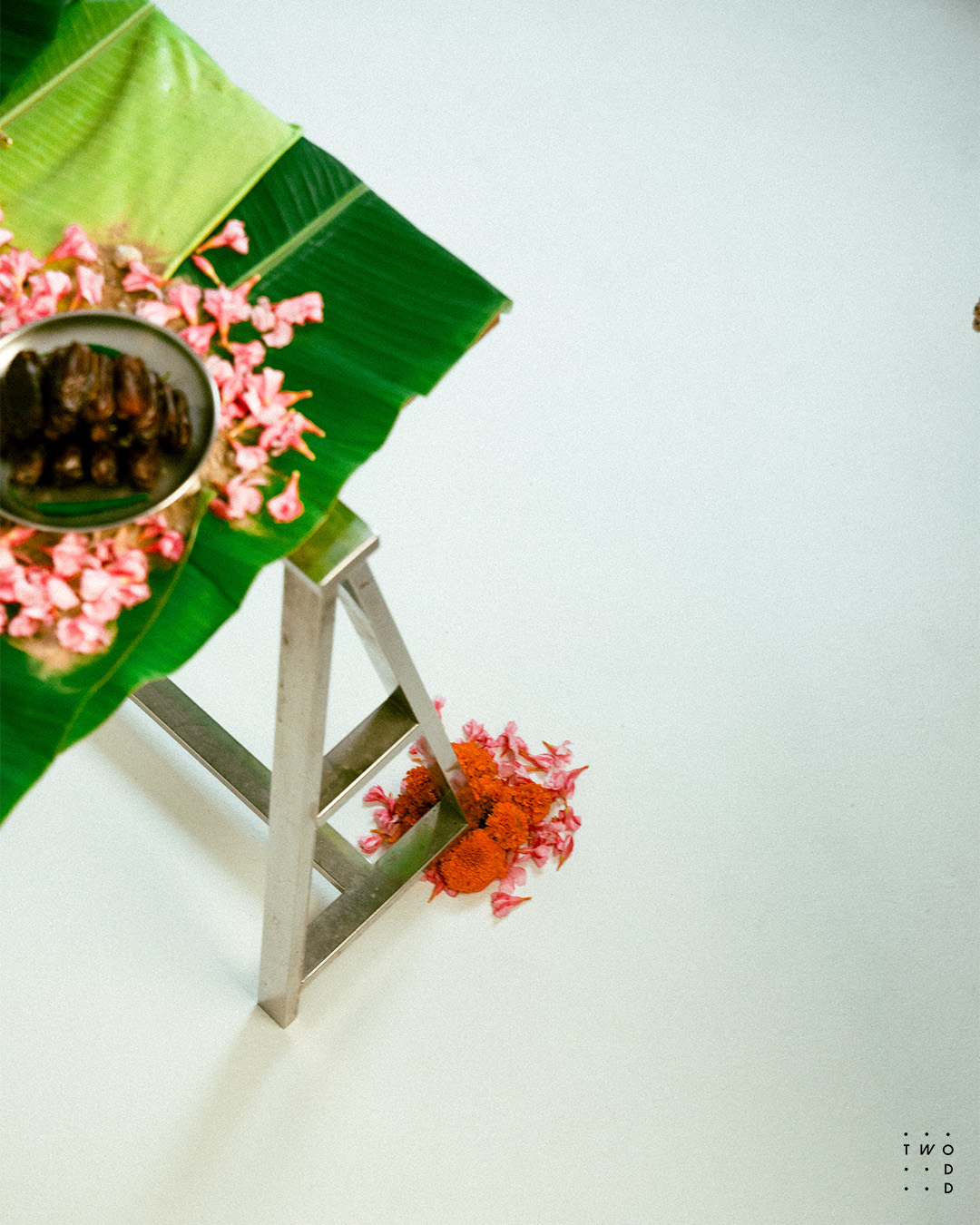
What my home(s) represents to me: It represents a space where I can truly be my authentic self.
A memory I associate with my home: When I visualise ‘home’ I see myself playing with mud as a child. My cousins and I would play ‘kitchen’ and act like we were cooking - with coconut shells, leaves, flowers, etc.

What other people often generalises about my home: If we’re talking about ‘home’ in the conventional sense like my hometown Kerala, I’ve heard different generalisations about it in various cities over the past 7 years I’ve moved around. So there’s two aspects to it for me:
- The assumption that we aren’t fluent or proficient in English because of our accents, so we are overlooked for opportunities just because we don’t speak in a western accent.
- The other assumption has to do with my appearance. When I come across or meet people from my community outside of my city they often find it hard to believe that I’m Malayali. As much as I am Mallu, I do also have a global influence - through travel, my upbringing and sheer curiosity. which in turn leads people to believe that it makes me less Malayali than the traditional stereotype.
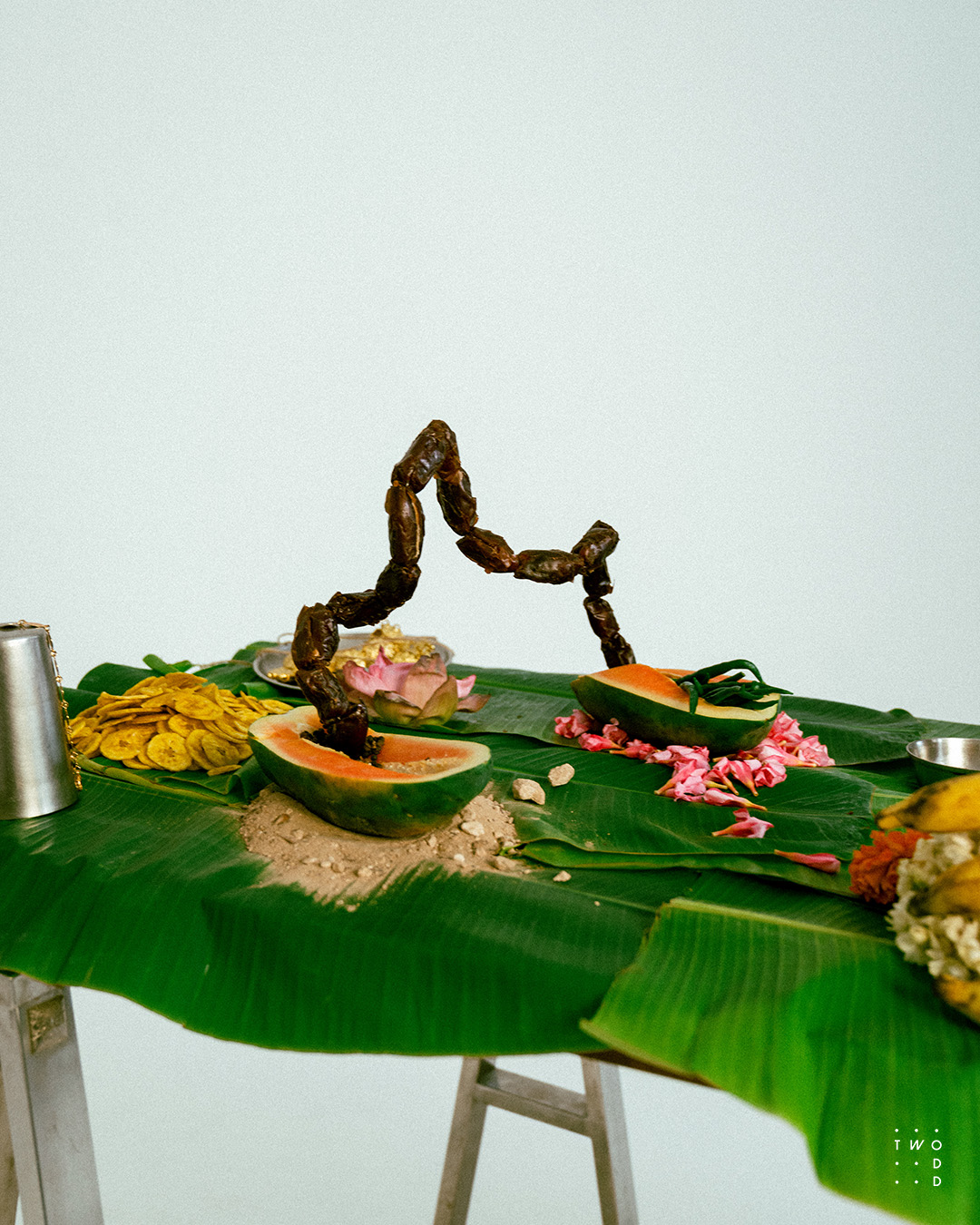
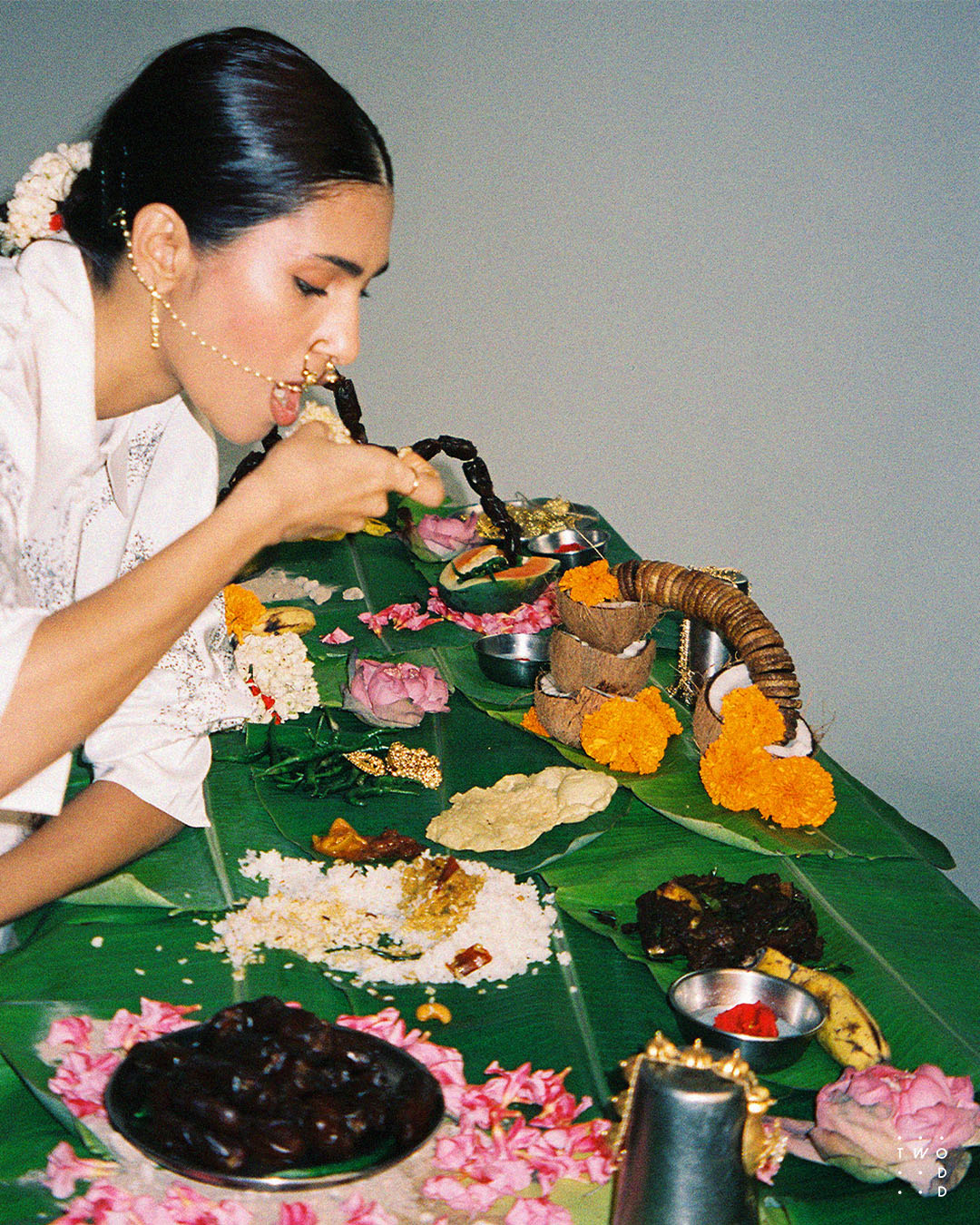
What these generalisations are ignoring:
- Kerala has a literacy rate of 94%. Besides that, Malayalam is one of the hardest languages to learn. The generalisations ignore that Kerala is a state that is rich in culture, and education, which helps us in grasping multiple languages. which Keralites have had to do as they have migrated to many different places across the world. Instead, the generalisation reduces us to our accents.
- I don't think being one makes me less of the other. There are 34 million of us in Kerala, there’s bound to be differences in all of us. I’m not less Malayali because of my other influences, the generalisations can be harmful because they force a stereotype of what Mallus should be.
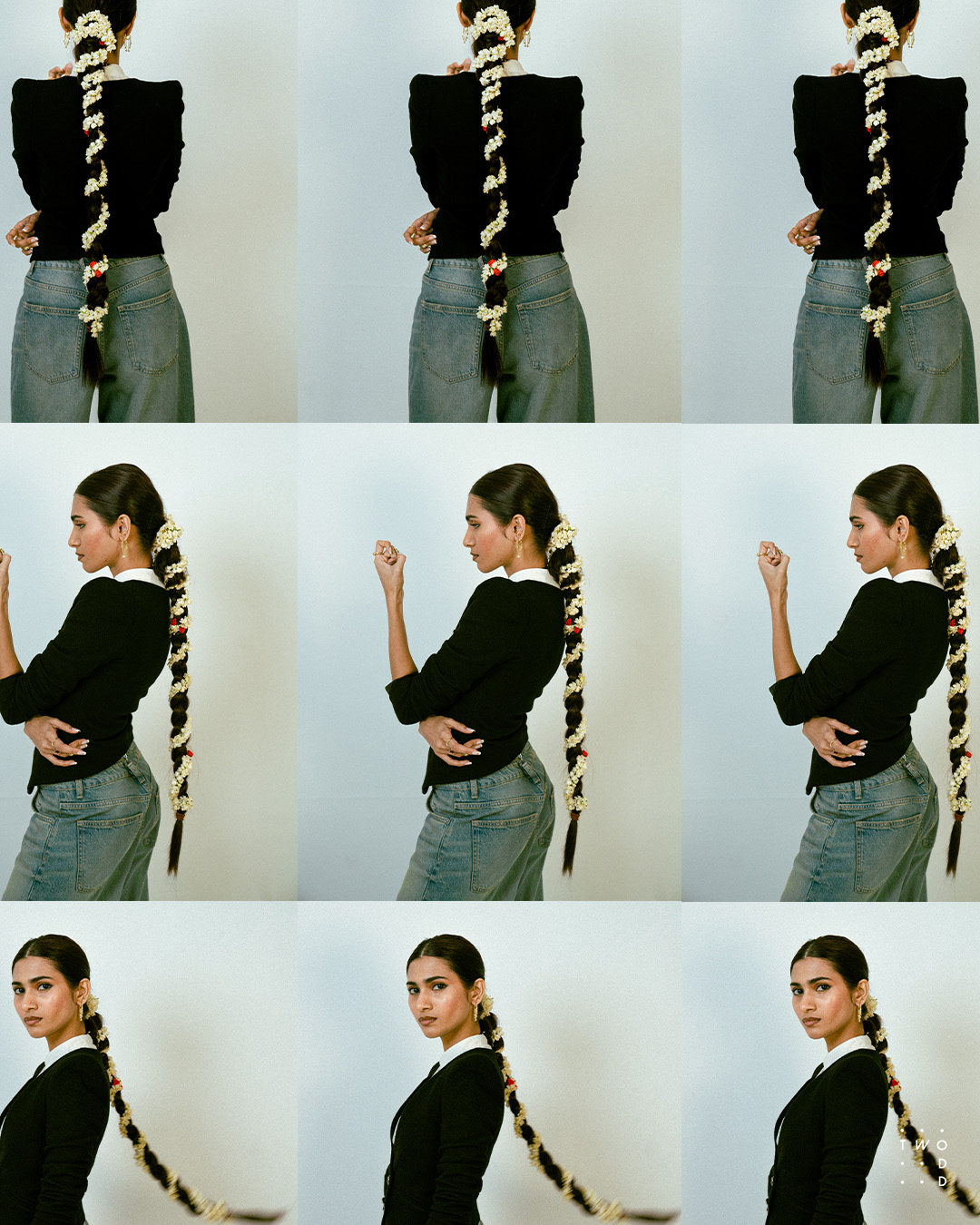
How these generalisations affected the way I saw myself: It honestly affected me more than I thought it would. First, the way Indians are perceived is pretty demeaning. especially in the creative/fashion industry I’m in. We’re always the last to be considered for an opportunity. Second, feeling the need to code switch, just to be respected and understood in the industry is something that caught me off guard. However, what is inspiring is witnessing first-hand the amount of women of colour reclaiming their power and breaking stereotypes in their own ways amidst all these generalisations around me. I see you.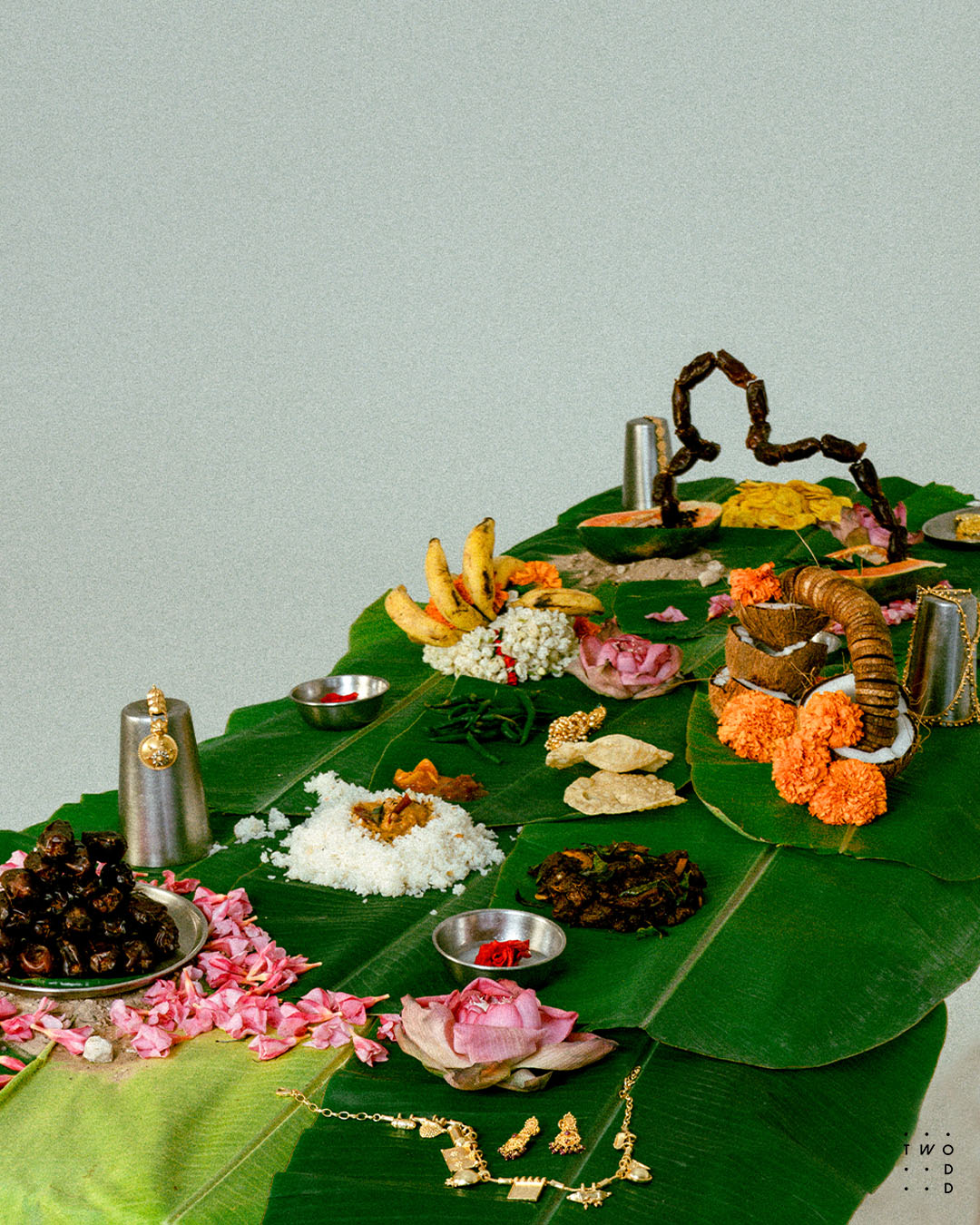

How did I reclaim my identity for myself: I haven't completely just yet, so TBD on how I continue to do that.
Elements of my roots that I used to reclaim my identity: So far i would say, the morals and values i was raised with that i’m still learning to incorporate into my personality daily. My father is a lot more traditionally Malayali than my mom. My mom was born and raised in Bangalore, so she had a less traditional Malayali upbringing and she has heavily influenced the way I look at myself as a Mallu. So I have always had a different way of identifying as Malayali because of their different perspectives on how they see themselves and what I have taken from them. My personal style also plays a big role in how I express my identity. I would usually stray away from traditional wear, especially jewellery, when I was younger. My mother would always try to get me to wear traditional clothing, but I was heavily influenced by western culture and would hate to mix the styles. I moved out of my home in Kerala when I was 17, and have lived in different cities since. Each city has exposed me to different cultures and traditions within india. After moving to Dubai, I slowly started incorporating traditional jewellery into my sense of style. I also embraced patterns, textures, and prints that reminded me of home, as it gave me a way to stay connected to my roots. Seeing a lack of representation in the region made me want to represent indian culture a lot more, as it’s so different from people’s typical style.
How my body of work has helped in the reclamation process: I'm still in the process of reclaiming my identity and finding my style in terms of my work as well. Constantly being around and working with people from different backgrounds and cultures keeps me inspired and encourages me to experiment in ways I never thought I would.
Why do I love food: I don't want to sound lofty about this, but obviously Malabari cuisine is my favourite. The reason I love Malabari food the most is because it is one of the things that makes me feel at home and stay connected to my roots.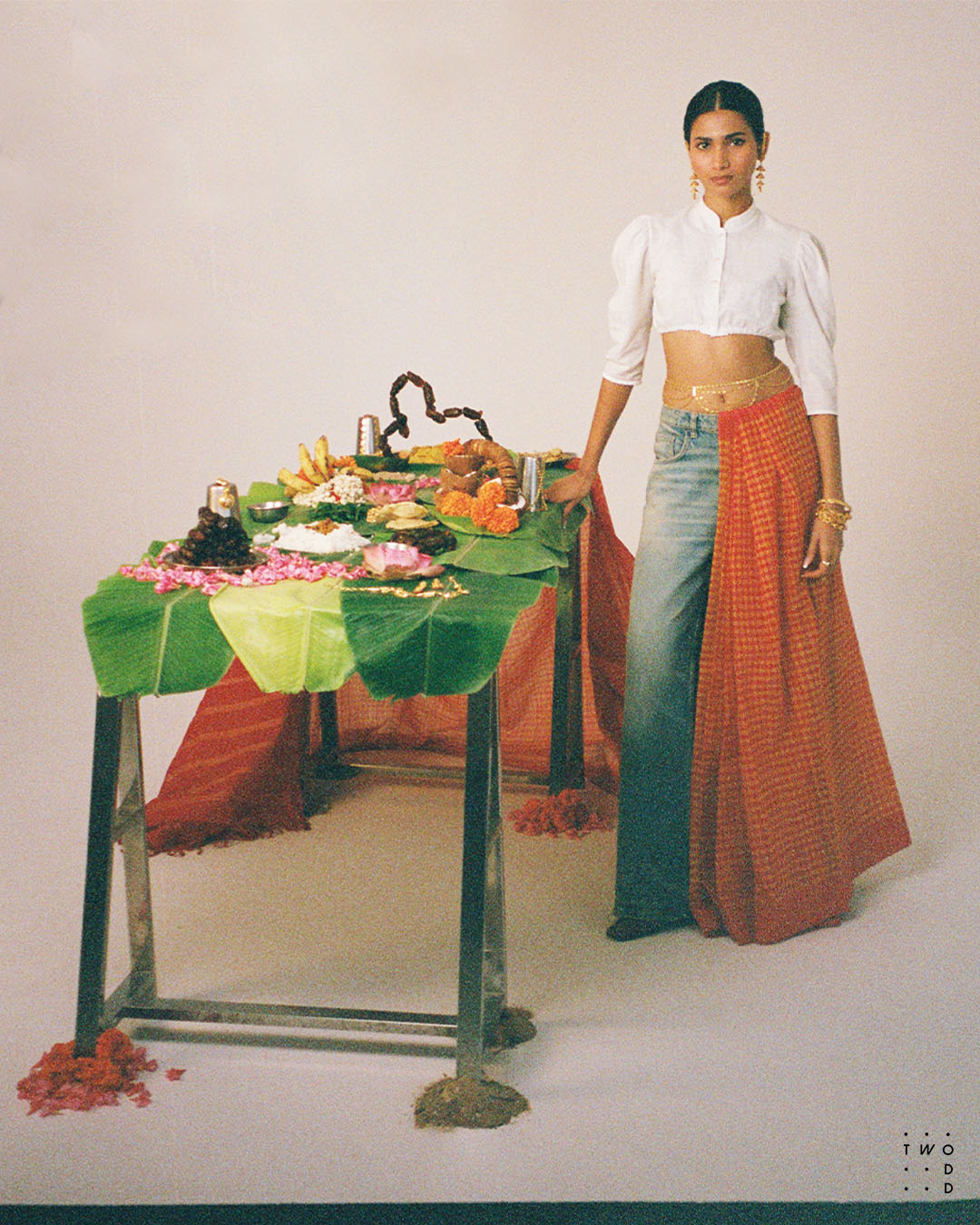
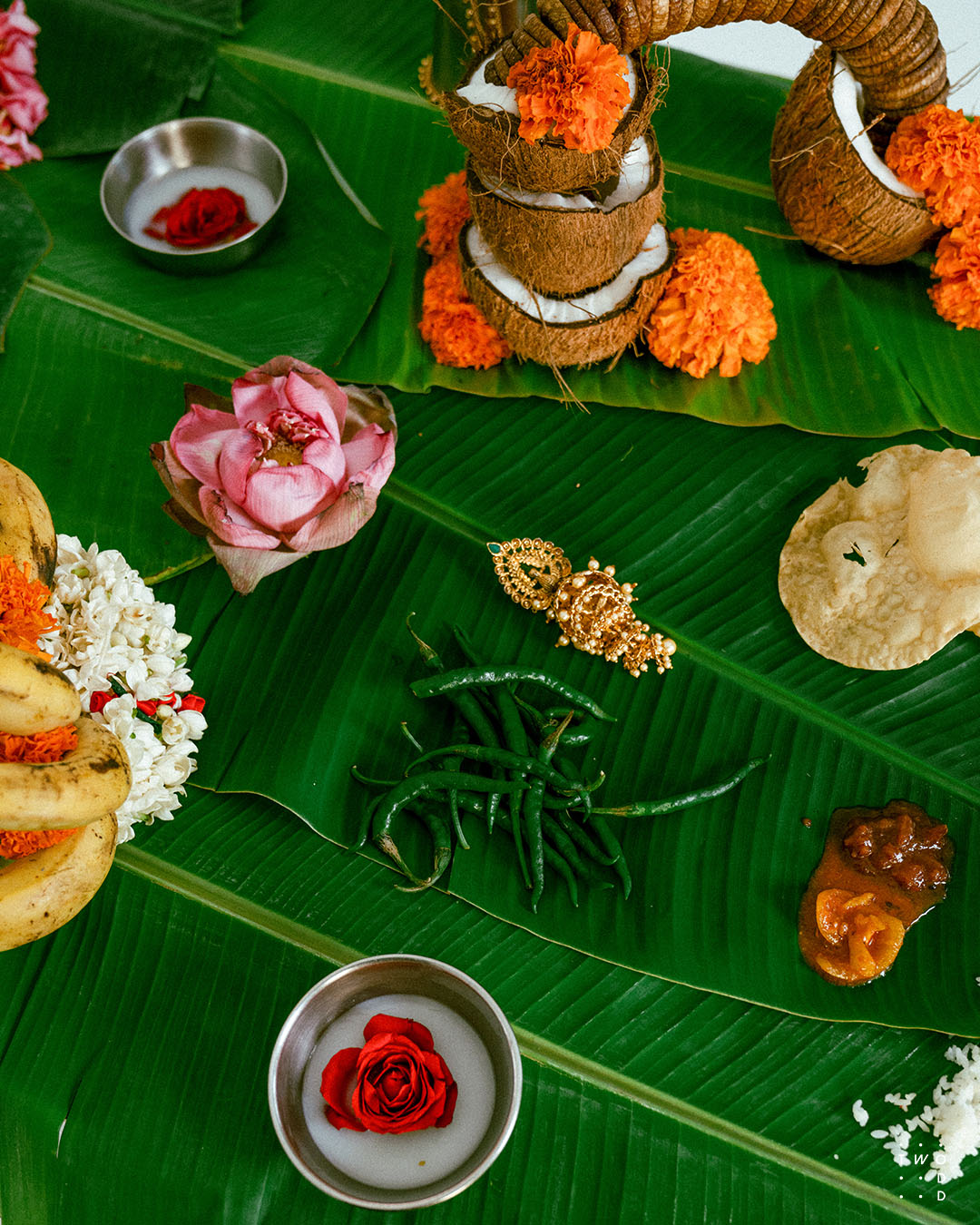
How and why food is important to my community: This is pretty cliche but also cliche for a reason. It brings people together and creates a sense of community
My favourite home food and why: My mom's ghee rice, stew, and fried beef. The burst of flavours and the balance of it is insane. The ghee in the rice and the stew being subtle as a curry, balances out with the crunchiness and the flavours of the fried beef.
How my food represents me: Like I mentioned earlier it keeps me in touch with my roots, but also keeps me grounded as Malabari food isn’t like a fancy cuisine that you need to have table etiquette for. It’s the kind of food that you eat with your hands to be able to really indulge and fully feel the essence of it. No matter where I am, I don't think this is a part of me that I am willing to lose or compromise on.

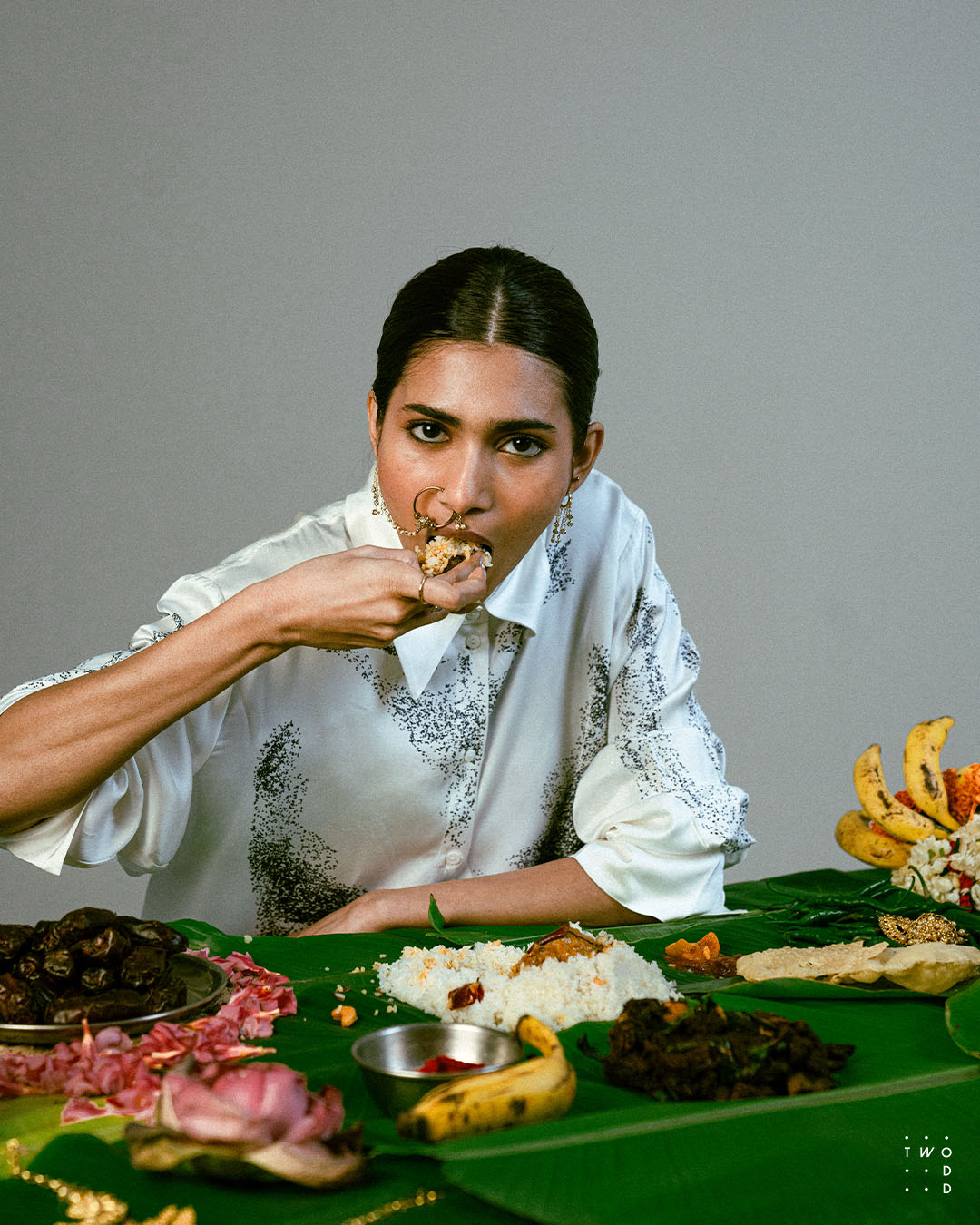
The table features elements that showcase Fathima’s identity as a South-Asian woman, and more specifically pays homage to her Keralite heritage. Motifs such as banana leaves, choices of flowers, beef fry, gold jewellery, and more, all reflect her upbringing as a Malayali-Muslim. Fathima, as a South-Asian and Muslim creative who resides in the Middle East, struggles to find balance between the cultures she has been exposed to and embraced. The contrast between the concrete table stand and the decor, which is adorned with sand and flowers at the table legs, denotes this very struggle. Other elements, such as dates, figs, and spices, represent her current life in the Middle East.
Creative direction and table art : Akshita Garud, Two Odd
Muse : Fathima Mehreen
Creative Producer and Words by : Malaika Naik
Styling by : Shivani Sudhir
Photography by : Sagar and Akshita


